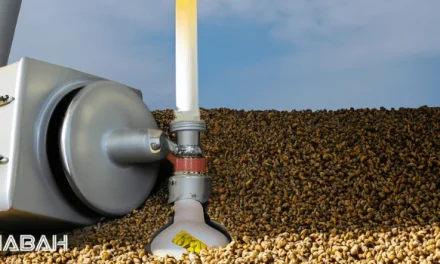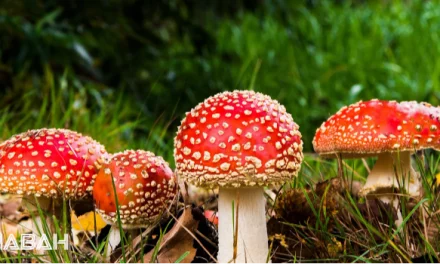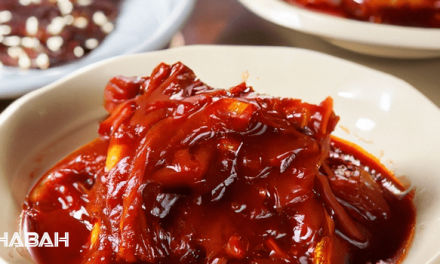As a consumer who values both faith and dietary preferences, it is crucial to have a comprehensive understanding of the halal status of various food ingredients. In this article, we delve into the often overlooked aspects of glycerin, shedding light on its halal certification and providing valuable insights for those involved in halal food production.
How Islamic Schools of Thought View Glycerol
Glycerol, also known as glycerine, is a common ingredient found in a variety of consumer products including foods, pharmaceuticals, and personal care items. It is a colorless, odorless, viscous liquid that has a sweet taste.
Some key facts about glycerol:
- Chemical formula: C3H8O3
- Melting point: 18.2°C
- Soluble in water and alcohol
Uses of Glycerol
Glycerol has a wide range of uses and applications:
- Foods – used as a humectant, sweetener, preservative
- Medicines – cough syrups, elixirs, tinctures
- Personal care – toothpastes, mouthwashes, soaps
- Tobacco products – keeps tobacco moist in cigarettes
- Other – antifreeze, dynamite, copying machines
“Glycerin is another ingredient widely used in the food industry in processed foods, beverages, candy as a sweetener and thickening agent.”
Halal Dietary Restrictions
Halal is an Arabic term meaning “permissible” or “lawful” in Islam. When it comes to food and drink, Muslims are prohibited from consuming certain ingredients, including:
- Pork and pork by-products
- Alcohol and other intoxicants
- Animals slaughtered inhumanely or not in the name of Allah
The main concerns around glycerol are whether it is derived from plant or animal sources, and whether alcohol was used during production.
Sources of Glycerol
Glycerol can be obtained from various sources:
Plant Sources
- Vegetable oils – palm, soybean, canola oil
- Coconut oil – purified to remove fatty acids
- Algae – emerging renewable source
“Glycerol is a byproduct of the process of making biofuel from vegetable oils like palm, soybean and canola oil.”
Animal Sources
- Tallow – rendered beef or mutton fat
- Lard – pig fat
- Soaps – produced from tallow or lard
“Glycerin could be from animal sources when it is a byproduct of making soap from tallow (beef fat) or lard (pig fat).”
Animal-derived glycerol would be considered haram or non-halal.
Commercial Production
- Most glycerol today is a byproduct of biodiesel production from plant oils
- It can also be produced from propene, a petroleum product
- Synthetic glycerol does not use any animal byproducts
“Most commercially-produced glycerol – otherwise known as glycerine – is a byproduct of biodiesel manufacture from vegetable oils such as palm oils. It can also be commercially manufactured from propene, a product of petroleum refining.”
Positions on Glycerol’s E422 Halal Status
There are differing opinions among Islamic scholars regarding the permissibility of glycerol:
Permitted
- Majority view is that glycerol is halal
- Plant and synthetic sources are accepted
- Only forbidden if confirmed to be from animal fat sources
“Commercial glycerine is usually a by-product of soap-making from oils or fat from halal source or palm oil. Hence, commercially sold glycerine is halal unless it specifically mentions it being from animal source.”
Prohibited
- Conservative view prohibits glycerol due to uncertainty of source
- Could be contamination from animal-derived glycerol
- Burden of proof is on certifying it is from plant sources
“We do not think that it is permissible to use it, because the source is uncertain and it may be impure because of processing, so it is better to avoid it.”
Differences Between Schools of Thought
- Hanafi – permitted unless known to be from haram source
- Maliki – prohibited unless known to be from halal source
- Shafi’i – permitted, viewing it as intrinsically pure
“The Hanafi scholars consider it to be pure, unless it is known that it comes from an impure source. The Malikis consider it to be impure, unless it is known that it comes from a pure source.”
Alternatives for Concerned Consumers
For those trying to avoid doubtful ingredients like glycerol, there are some alternatives:
-
Look for halal certification on products containing glycerol
“One easy way to identify whether glycerol is halal is to look for halal certification on the products you buy. This ensures the glycerol used is from halal sources.”
-
Avoid products that list ambiguous “vegetable” sources
“Avoid products using phrases like ‘natural sources’ or ‘vegetable sources’ as these terms are vague and don’t confirm the absence of animal byproducts.”
-
Seek glycerol substitutes like:
- Sorbitol
- Xylitol
- Propylene glycol
-
Sugar alcohols
“Those wanting to avoid glycerol for halal reasons could use substitutes like sorbitol, xylitol, or propylene glycol in products requiring humectants or sweeteners.”
-
Consult halal consumer groups for recommended products and further research
“Concerned consumers should consult halal consumer groups to identify products that are glycerol-free or that use halal-certified glycerol.”
Is Glycerol Halal – FAQ
Glycerol, also known as glycerin, is a compound commonly found in fats and oils. Determining the halal status of glycerol depends on its source. If it is derived from a halal source, such as plants, it can be considered halal. However, if it is derived from non-halal sources, such as animal fats or pork fat, it would be considered haram.
Does glycerol require halal certification?
Glycerol, like other ingredients, may require halal certification to confirm its halal status. It is always recommended to check for proper certification from reliable halal certification authorities.
Is glycerol permissible according to Islamic dietary laws?
Yes, glycerol can be permissible according to Islamic dietary laws if it is derived from halal sources. As long as the source is lawful, it can be used in accordance with Islamic guidelines.
What is the ruling on glycerol in Islam?
In Islam, if glycerol is derived from permissible sources, it is considered halal. However, if it is derived from non-halal sources, it is considered haram. The ruling is based on the source of glycerol.
What does the Qur’an say about the halal status of glycerol?
The Qur’an does not specifically mention the halal status of glycerol. However, the source from which glycerol is derived determines its halal status in accordance with Islamic teachings.
Is glycerol considered halal or haram?
The halal or haram status of glycerol depends on its source. Glycerol derived from halal sources, such as plants, is considered halal. Conversely, glycerol derived from non-halal sources, such as animal fats or pork fat, is considered haram.
Can synthetic glycerol be considered halal?
The permissibility of synthetic glycerol depends on its source. If the synthetic glycerol is derived from halal sources and does not involve any prohibited substances, it can be considered halal. It is always advisable to verify its halal status from reliable sources.
Conclusion
The permissibility of glycerol according to Islamic law remains a subject of scholarly debate. The key points to consider are:
-
Most glycerol today comes from plant oils or petroleum, but potential contamination from animal sources exists
-
Opinions vary between halal certifiers and different schools of Islamic jurisprudence
“There are differences of opinion among Muslim scholars regarding the use of ingredients such as glycerol in products like food supplements.”
-
Consumers uncomfortable with ambiguity should avoid doubtful ingredients or seek halal certification
“Muslims who choose to completely avoid the doubtful ingredients can search for halal-certified products containing glycerol instead of the ambiguous ones.”
-
More open dialog and regulations are needed regarding labeling of sourcing
“Increased consumer awareness and more transparent labeling from manufacturers would help address concerns over glycerol and other potentially doubtful ingredients.”
In conclusion, whether to avoid glycerol entirely or not is an individual decision for Muslim consumers based on their own interpretations and level of concern.





